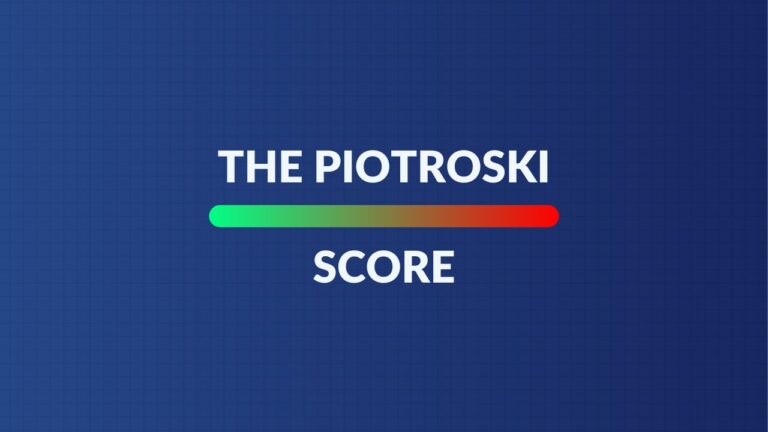Progyny (PGNY) – Refresher and an Investor Conference – January 13, 2024
This is perhaps the core holding that I talk about the least. That’s mainly because it’s such a wonderfully boring performer. There’s very little drama here aside from short reports from people who don’t understand the industry or the company. I wanted to offer a refresher on the Progyny value proposition and infuse highlights from this week’s investor conference. If you’ve read the deep dive or follow the company very closely, this will be a review.
The Progyny formula continues to work perfectly. Its ability to granularly customize fertility treatment plans combined with its rare integrations with national carriers continue to deliver tangible benefits (higher success rates, quicker time spans, lower costs) vs. the pack. Eliminating dollar maximums (per treatment) and the coinciding mandated step therapies to cut costs and corners is the major key. Progyny rarely cuts a treatment plan short, which is a cliche in the space and forces employees to bear crazy and unrealistic out of pocket costs. Treatment cycles cost about $60,000 on average for context. While elimination and deeper customization often lead to higher per-treatment costs for the employer, the net cost benefit is ~30%. How? Because there is a large difference between perceived and actual cost within fertility.
“While we continue to improve upon our solution each year, national clinical outcomes have been relatively consistent, revealing that carriers either lack the focus or aren’t able to overcome the structural limitations in their approach.” – CEO Pete Anevski this week
Its custom plans (which members select with the help of a dedicated patient care advocate/expert) lead to direct and quantified outcome advantages. These edges include a 27% better live birth rate and a 24% better single embryo transfer rate. Better outcomes and shorter time to fertilization often mean forgoing more rounds of treatment. It also means clients can greatly cut Natal ICU (NICU) costs, which can routinely run in the 7 figure range for twins and other birth complications. That’s why twins are known as “million dollar babies.” Progyny minimizes these complications vs. legacy treatment because it crafts plans around individuals, not the entire human race. Needs widely vary across prospective mothers. Legacy treatment doesn’t take that into account.
Progyny creates an even larger cost advantage by paying benefits to members on a pre-tax basis. Again, for plans that generally cost around ~$60,000 per cycle (often more), this saves nearly $15,000 a pop on top of the forgone NICU costs and incremental treatment needs. No other competitor has the needed carrier integrations to achieve these savings. They just can’t match Progyny here. Plain & simple. That’s because no competitor can call firms like Microsoft, Meta, Google, Uber, Exxon, Unilever, Target, Hershey, Amazon etc. their clients. Microsoft and Amazon specifically “went to bat” for Progyny at its inception as they saw how valuable the service was. In essence, they forced the hand of carriers to integrate if the insurers were to keep these chunks of business. Other positive byproducts of this reality include broad single parent and LGBTQ+ coverage, which is also rare in fertility benefits.
It pays to call 17% (85 members) of the Fortune 500 your clients. The remaining 83% are also Progyny’s for the taking as most have legacy coverage or none at all. Kindbody and Carrot (competition) don’t come close in terms of large client adoption. They don’t even come kind of, sort of, remotely close. Different ballpark. Different universe. Walmart is the only mega-cap client between the two, which Progyny didn’t even bid for as it wasn’t willing to offer the limited plan design that Walmart wanted.
Progyny is the king of managed fertility benefits… a dominant share leader in an industry compounding at a double digit clip. Despite all of this, the runway remains very long, with just a 6% penetration rate in its serviceable addressable market. This 6% also assumes just a $15 billion market size, which Progyny thinks will actually be closer to $50-$75 billion with its broader offerings. The growth opportunity also doesn’t include new endeavors like maternity, childcare, menopause or preconception support. Revenue generation from these new areas will begin in 2025 and will morph Progyny from more of a point solution within fertility to a full-service provider.
Some will point to falling birth rates as the reason why rapid growth can’t continue. What they ignore is that birth rates are actually rising for women over the age of 35. Families are delaying childbirth more than they ever have thanks to more equitable economic opportunity. Delays enhance the need for treatment. Per the CDC, 1/5 couples now need treatment vs. 1/8 just 7 years ago.

Source: Brad Freeman – SEC Filings, Company Presentations, and Company Press Releases
All of Progyny’s unique advantages and tailwinds mean healthier employers as well as more profitable clients and insurance carriers. That’s the value needle Progyny has threaded for 9 straight years. And its outcome leads continue to consistently grow. As an aside, that paired with Progyny always seeing treatment cycles to their completion is why it’s the only player in the space to offer full outcome data. To be candid, it’s not hard to be transparent when the data is as positive as it is for Progyny. This is also partially why Progyny’s gross client retention has been nearly 100% for 9 straight years with a Net Promoter Score over +80. That’s not normal in healthcare.
“We believe we are in the strongest competitive position we’ve ever been in. Our active pipeline is the largest it has even been at this time of the year.” – CEO Pete Anevski this week
“We had another great sales year [for 2024].” – COO Michael Sturmer this week
Simply put, Progyny provides a boatload of unmatched incremental value. Impressive financial statements are the effect of that impactful cause.

Source: Brad Freeman – SEC Filings, Company Presentations, and Company Press Releases

Source: Brad Freeman – SEC Filings, Company Presentations, and Company Press Releases
Final Notes from this week’s conference:
- Progyny hinted at existing client headcount growth resuming the positive trend that paused in 2023. This would be a modest growth tailwind for the firm vs. 2023. The slight budget headwind that recession fears caused also seems to be diminishing.
- Progyny hired Katie Higgins as its new Chief Commercial Officer. She was previously the Chief Revenue Officer at Crossover Health (very small) and a team leader at Optum. It also added Steven Leist as its new CTO. Steven comes from American Airlines where he was its VP of Customer Technology.

Source: Brad Freeman proprietary research











